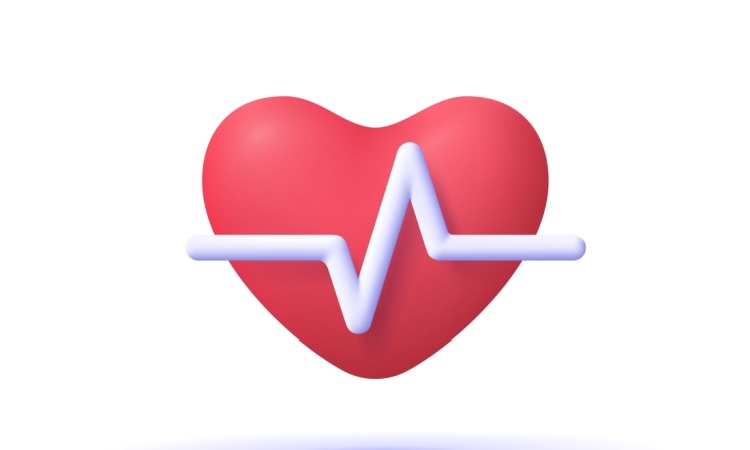All About Heart Beats: Rate, Rhythm and Health
All About Heart Beats: Rate, Rhythm and Health

The heart is the main organ of our circulatory system and its function is to pump blood throughout the body. While performing this function, the heart muscles contract and relax. A heartbeat is the contraction of your heart muscles while pumping blood to your lungs and the rest of your body. With each beat, arteries carry oxygen-rich blood from the heart to all body parts, and veins return oxygen-poor blood or deoxygenated blood to the lungs for reoxygenation.
Know Everything About Heartbeats
Heartbeat, also known as heart rate, refers to the number of times your heart beats in a minute. A normal resting heart rate is 60 to 100 beats per minute (bpm). If the resting heart rate is below 60 bpm, the condition is called bradycardia, and above 100 bpm, it is called tachycardia.
The rhythm and pace of the heartbeat are controlled by the electrical conduction system, which transfers signals from the nervous system and brain to the heart. In other words, with each heartbeat, an electrical signal travels from the top of the heart to the bottom, causing the heart to contract and pump blood.
Here's how the heartbeat process works:
• The heart has four chambers - two atria (upper) and two ventricles (lower).
• The electrical signals begin in the sinoatrial (SA) node in the right atrium, the heart’s natural pacemaker, and travel through the atria, causing them to pump blood into the ventricles.
• The signal then moves down to the atrioventricular (AV) node, located between the atria and the ventricles. Here, it slows down slightly while the blood is being pumped into the ventricles.
• The signal then travels along the walls of your ventricles, causing them to contract and pump blood out of your heart.
• The ventricles relax, and the heartbeat process starts all over again in the SA node.
The electrical system ensures the heart beats at a normal rate and in a regular rhythm.
Conclusion
Now that you know all about heartbeats and the effect of irregular heartbeats on your health, you must stay financially prepared with health insurance for medical emergencies. Irregular or rapid heartbeats can be due to many reasons, such as infection, dehydration, sleep quality, stress and anxiety, and not necessarily due to arrhythmia (heart rhythm issue). However, you should not ignore it if the resting heart rate is consistently too fast or slow, accompanied by symptoms such as dizziness, fainting, or shortness of breath.
Disclaimer: This blog provides general information and discussions about health and related subjects. The information and other content provided in this blog, website or in any linked materials are not intended and should not be considered, or used as a substitute for, medical advice, diagnosis or treatment. Kindly contact your Doctor before starting a new medicine or health regime.
RELATED ARTICLES
Modern Treatments and Insurance Coverage for Heart Diseases
Why Heart Attacks are More Common in Winters and Ways to Reduce Your Risk
World Heart Day: How You Can Protect Your Heart with Health Insurance
10 things You Should Know on World Heart Day
Guide to Health Insurance plans for heart and other specific diseases










 Health Insurance
Health Insurance  Travel Insurance
Travel Insurance  Car Insurance
Car Insurance  Cyber Insurance
Cyber Insurance  Critical Illness Insurance
Critical Illness Insurance
 Pet Insurance
Pet Insurance
 Bike/Two Wheeler Insurance
Bike/Two Wheeler Insurance  Home Insurance
Home Insurance  Third Party Vehicle Ins.
Third Party Vehicle Ins.  Tractor Insurance
Tractor Insurance  Goods Carrying Vehicle Ins.
Goods Carrying Vehicle Ins.  Passenger Carrying Vehicle Ins.
Passenger Carrying Vehicle Ins.  Compulsory Personal Accident Insurance
Compulsory Personal Accident Insurance  Travel Insurance
Travel Insurance  Rural
Rural 











